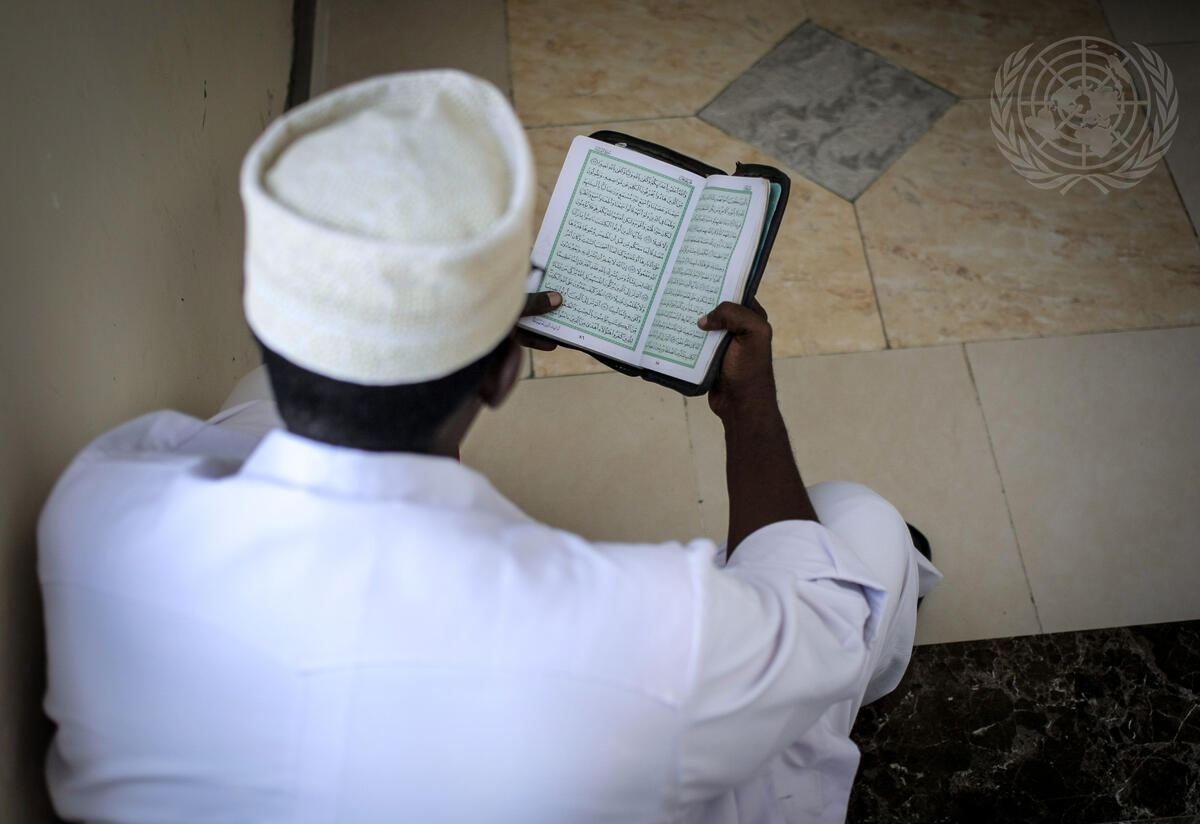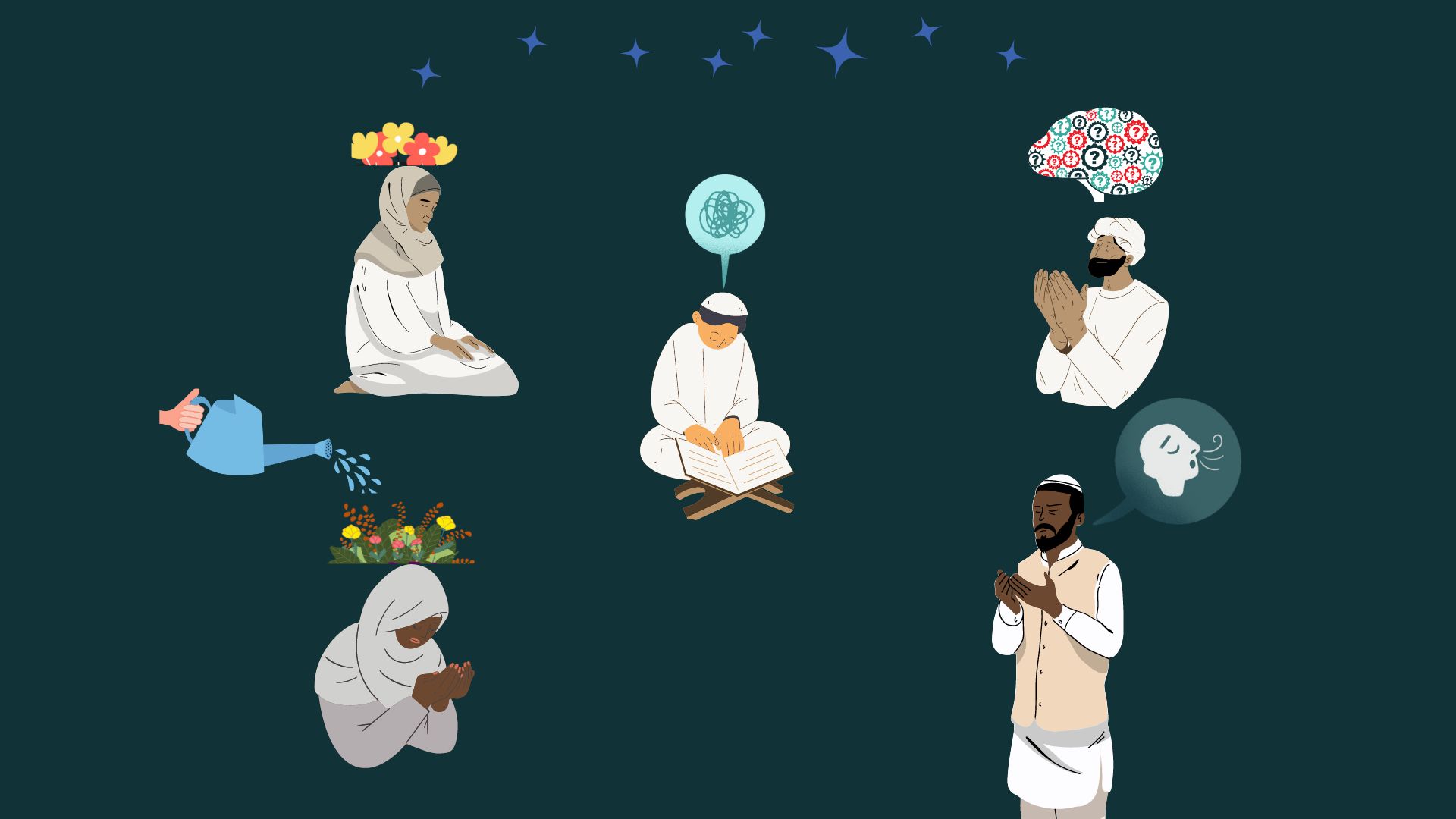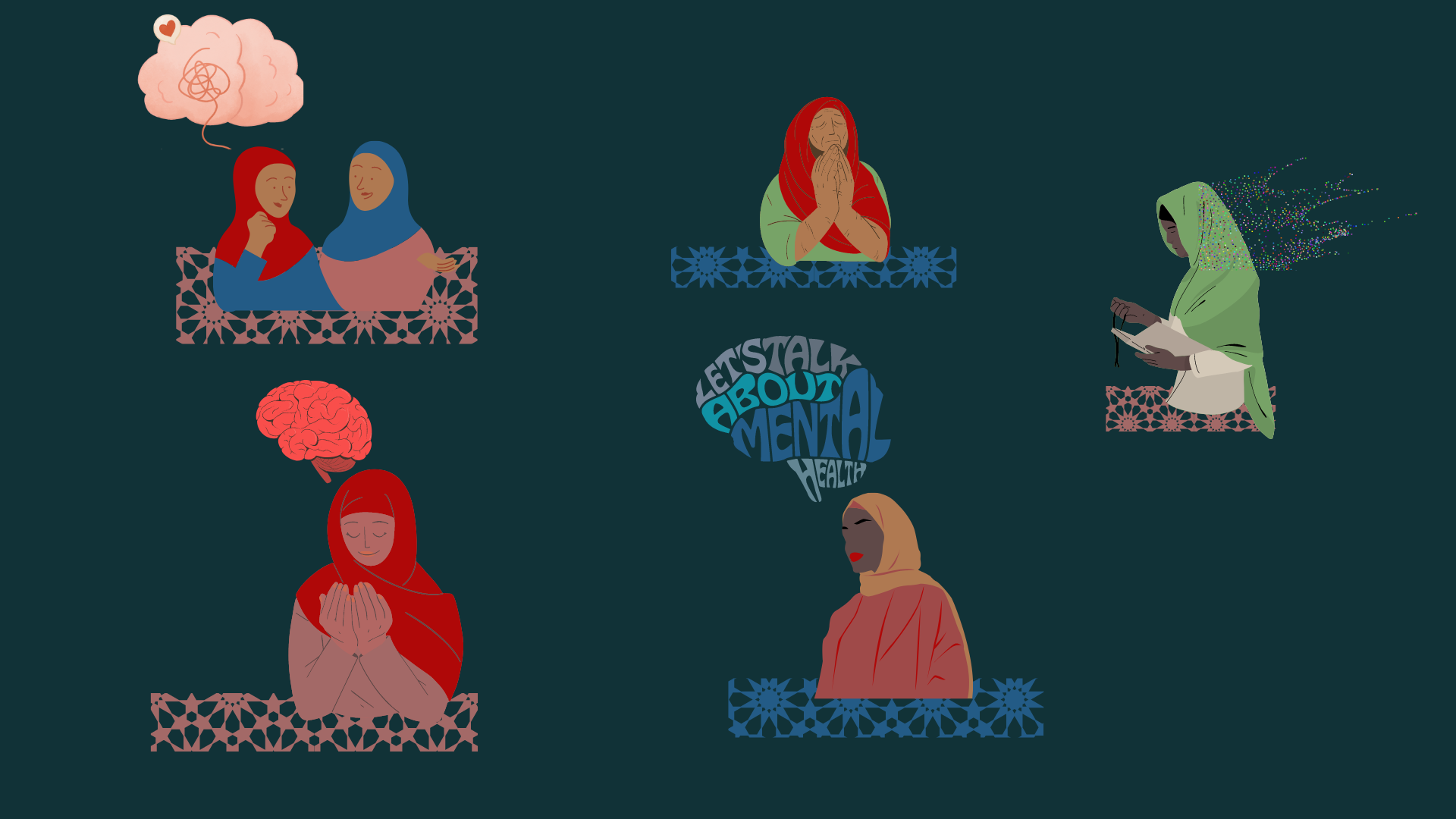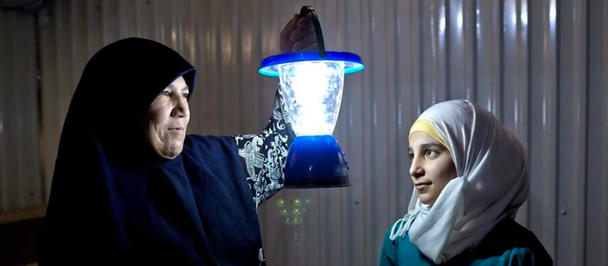The role of religion and faith in integrating MHPSS and peacebuilding
Bridge over troubled waters
November 15, 2022

A delegate reads the Qur'an ahead of the start of a National Conference on Tackling Extremism in Somalia in the country's capital, Mogadishu.
Around 84 percent of people worldwide identify with a religious group. While this statistic speaks to the immense unifying potential of religion, history tells us that religion can unite as much as it can divide. From a mental health perspective, religion and spirituality can play a significant role in helping individuals overcome the destructive effects of conflict. Practices such as prayer, rituals, meditation, spiritual gatherings, and fasting, that are common to many faiths around the world, help people to cope with psychological distress. However, religion can also be divisive and harmful, especially when used to justify injurious practices as a way of treating people with mental health disorders.
The series “Settled Minds, Settled Lives: Building resilience through #InnerPeacebuilding” aims to unpack the principles outlined in UNDP’s Guidance Note on Integrating MHPSS into Peacebuilding under different thematic issues. In this story, we speak with Franck W. Tsafack and Igal Mohamed and draw from the examples of UNDP work in Nigeria and Somalia to better understand the role that religion and spirituality have played in promoting integration between the fields.
Why is mental health and psychosocial support (MHPSS) a necessary step for reconciliation, recovery, and lasting peace?
Franck: In Nigeria, the human rights violations committed by Boko Haram have caused severe psychological trauma. Violence does not stop when conflict ends, but it is internalized, hindering efforts towards peacebuilding and community reconciliation. Mental health and well-being are critical to the collective and individual ability to think, interact with others, and enjoy life. They directly underlie basic human and social values such as happiness, friendship, and solidarity.
Igal: Somalia has been at war with itself for the last 40 years. Different clans and tribes have been fighting over resources, control, and power since I was a child. A new ‘normal’ has been created, in which violence and loss have been normalized. I believe social cohesion has been damaged to such an extent that a greater focus is needed on individuals’ mental health in order to re-create a sense of solidarity amongst individuals. In fact, most Somalis have lost multiple family members and mistrust between people is widespread. Somalis need to be given an opportunity to heal, with interventions not only at the community level, but at the individual level and using a bottom-up approach.

Religion and spirituality can help people overcome the psychological effects of conflict and maintain overall mental health.
Igal recounts a recent incident during which he himself was affected by an explosion in Mogadishu. In line with the Guidance Note’s principle of acknowledging, managing and supporting personnel wellbeing, UNDP provided him with stress counselling. While Igal was unhurt, he needed counselling to heal what he calls his ‘invisible wounds’ and to prevent that experience from becoming lasting trauma. Igal says that the invisible wounds are what war does to individuals. And a key reason why prevention is so essential.
Acknowledging context and the religious and faith-based practices and rituals therein, is a key component of the UNDP’s approach to integrating MHPSS in peacebuilding, currently implemented across 15 countries.
We ask Franck and Igal how they perceive the link between religion and MHPSS within a peacebuilding context in their respective countries.
Igal: I believe the Somali people derive their great resilience from, among other factors, their strong faith. For example, whenever Muslims are faced with hardships or trauma, they rely on Allah to find the right direction, since Islam encourages people to use prayer and other religious practices to help them accept their personal circumstances. In Somalia, when someone is mentally unwell, Imams support the healing processes through prayer and reading verses from the Qur'an. Unfortunately, discussion of mental health is still very stigmatized in Somalia, and people who have mental health challenges are often labelled ‘mad’ and are ostracized. Talking about mental health is largely taboo. In some instances, sheikhs from local mosques are called to come to the home of the ‘sick’ to lead healing spiritual practices. It is safer to do this in the home than anywhere public.
Franck: In my previous job, I coordinated an MHPSS programme that aimed to use faith as a means to build resilience. Religious leaders, who were struggling to provide help and consolation to a large group of victims in their communities, were trained on psychological first aid, Problem Management Plus, and interpersonal therapy for groups to strengthen their skills in the provision of basic mental health support in their communities. I witnessed how churches and mosques were transformed into healing and counselling centres where people could come to receive support; if well received by the local authorities, I think that such experiences could be replicated elsewhere.

Religious leaders and women of faith can play an important role in combating the stigma around mental health.
We discover that there are many similarities with the Nigerian context. Franck explains that in Nigeria, faith and spirituality are part of many people’s identities and everyday lives. For instance, for many people in Nigeria, burying their loved ones according to the rituals of their faith is important in order to be able to grieve.
We are keen to understand how religion can contribute to community healing and reconciliation and ask for examples. Igal tells us about the Sitaad practice in Somalia, a traditional spiritual gathering where women come together for devotion and worship to sing, to chant and to clap. Here they safely share their problems, pray together, and console those who are facing misfortune. The sessions include readings from the Qur'an and storytelling about the Prophet’s history, which helps women realize they are not alone in facing their problems. For children, Sitaad is a festive opportunity where they can find peace of mind in the midst of prolonged conflict and rise of extremism.
The UNDP Guidance Note identifies the principle of taking a holistic, multisectoral, and multilevel approach, including through reinforcing the role of faith based actors, religious leaders and women of faith in bridging MHPSS and peacebuilding, and advocates for - where necessary - building their capacity. In your opinion, how does the application of such a principle contribute to inclusive social values that challenge harmful stigma?
Igal: Trauma is a recurring feature in the Prophet’s life story. If religious leaders and women of faith can engage from such a perspective, acknowledging that mental health issues happened to the prophet – in the year of Sorrow when the prophet lost his beloved wife and uncle - and Allah consoled him by revealing Surah Yusuf to him which narrates the story of prophet Yusuf, then perhaps it will be easier to train, engage, and work with religious leaders to combat the stigma around mental health. However, it is important that Imams do this in a more careful and peaceful way, without resorting to harmful practices such as beatings and strangling, to treat people.
Franck: Religious leaders need to be involved as primary actors in the design of strategies for integrating MHPSS in peacebuilding, to ensure the use of a faith-sensitive approach that is likely to be more effective in societies where religion plays such a central role in everyday life, such as Nigeria.
Both Franck and Igal agree that religious leaders are an important entry point to undo stigma and promote mental health and psychosocial support in order to prevent violent conflict and extremism. Through the work of UNDP in these countries, they note that these gatekeepers have influence on people and can be considered as social mobilisers. The more they know about the reality of mental well-being and psychosocial support, a prerequisite to peacebuilding, the more they can contribute to stigma reduction, behavior change, and the necessity of scientific interventions and referral to health practitioners.
________
With thanks to Franck W. Tsafack, UNDP Nigeria and Igal Mohamed, UNDP Somalia
For information on UNDP’s work on MHPSS in peacebuilding, please contact Nika Saeedi, UNDP global focal point on MHPSS and Team Leader, Prevention of Violent Extremism at nika.saeedi@undp.org.

 Locations
Locations



